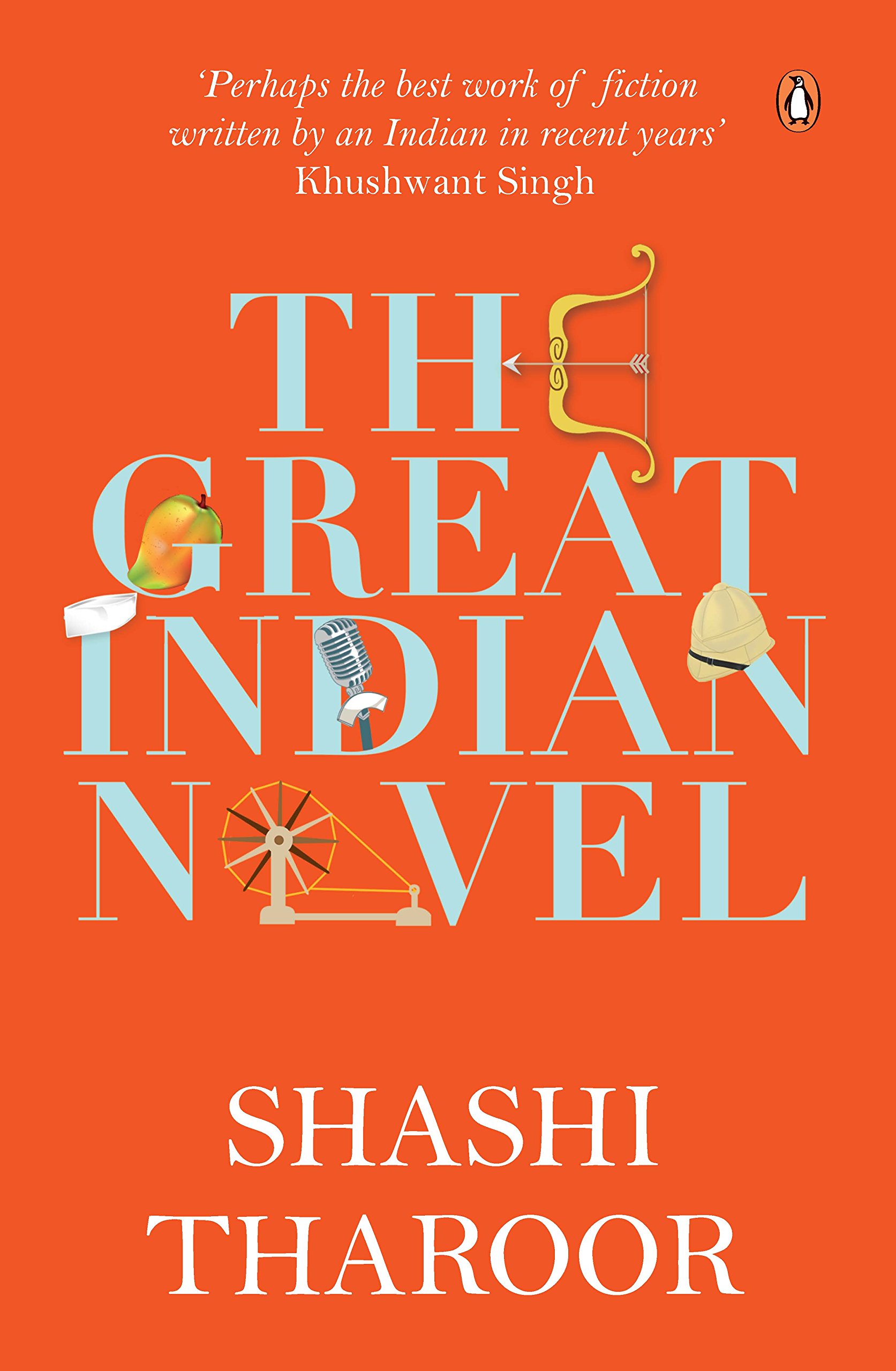Shashi Tharoor is a well-known literary figure who is a politician, writer, and former foreign diplomat. In India, he is well-known as a writer with numerous successful songs to his credit. Tharoor, a famous writer, began writing at the age of six and has since produced eighteen books about India and its history, culture, politics, and society.
His publications offer insight into Indian culture, its place in modern society, and how it came to be one of the world’s largest democracies.
Here is a list of Shashi Tharoor’s ten works that revolutionized the Indian literary scene:
1. The Great Indian Novel (1989)
One of Shashi Tharoor’s novels is The Great Indian Novel (fictional book). It is based on the Mahabharata, a Hindu epic. The epic is recast and recreated in the context of India’s Independence Movement and the first decade following independence in Shashi Tharoor’s books.

A characteristic of the Tharoor edition of the older generation that results in a de-emphasis on the Pandavas and Kauravas’ measures.
2. Show Business (1992)
The book parodies and satirizes formulaic Bollywood movies, attempting to raise and answer concerns about contemporary India and Indians through the use of it as a metaphor. It is a fictitious work that chronicles the story of Bollywood superstar Ashok Banjara.
The character of Ashok Banjara, as well as numerous events in his life, are based on Amitabh Bachchan, Bollywood’s biggest celebrity. Shashi Tharoor’s books blend a variety of styles, including a film okay format. You’ll be thinking a lot towards the end of this book. Rushdie’s writings on Bollywood culture and Indian politics are reminiscent of Shashi Tharoor’s.
3. Riot (2001)
Tharoor effectively explores with narrative form in ‘Riot,’ exploring the mystery of Priscilla Hart’s death through the narratives of a dozen or more characters, all of whom are often contradicting. It is a novel about the ownership of history, love, hate, cultural commission, religious fanaticism, and the impossibility of knowing the truth that is both intellectually provocative and emotionally powerful.
The possession of history, love, hate, religious zealotry and the impossibility of knowing veracity are all themes in this Shashi Tharoor book. Books by Shashi Tharoor are one of the best delights for bookworms.
4. India: From Midnight to the Millennium (1997)
It covers a wide range of issues, including caste, Indian democracy, Indira Gandhi, India’s partition, and the country’s transition from a socialist to a free market economy. Shashi Tharoor makes a strong case that India is at the crossroads of the world’s most pressing issues at the end of the twentieth century. The answers to such concerns will decide the type of world that will emerge in the next century, and because Indians will soon account for a sixth of the world’s population, their decisions will have global ramifications.
He is adamant about the fact that India is the most important question facing the globe at the conclusion of the twentieth century. He further added that the responses will determine the type of world the following generation will inherit. The books of Shashi Tharoor pique our interest.
5. Bookless in Baghdad (2005)
It’s made up of previously published articles, book reviews, and columns about authors, books, and literary musings. Tharoor writes on his experience visiting Baghdad on a UN effort shortly after the Gulf War in the title tale, “Bookless in Baghdad.”
Inspirations, reconsideration, the literary life, appropriations, and interrogations are all included in this section.
6. India Shastra: Reflections on the Nation in our Time (2015)
Tharoor aims to answer essential concerns in this book in order to demystify the complicated difficulties that have arisen as a result of the country’s continuing transition.
He brings his views on Indian society, economics, and politics up to date in wide-ranging short articles that extend the narrative right up to the present moment, after tracking India’s transformation through the years in multiple earlier books.
We can see the narration of Indian society, economics, and politics up to the present moment in this Shashi Tharoor book.
7. An Era of Darkness: The British Empire in India (2016)
He demonstrates his flawless research, distinctive wit, and acumen in this scene, which is reminiscent of British control in India. He publicly stated how the colonists exploited India, citing examples such as the diversion of national resources to Britain, the ruin of India’s textile, steel, and shipping sectors, and the negative charge of agriculture.
He debunks the claims of Western and Indian Empire defenders about the alleged benefits of British rules, such as democracy and political freedom, the rule of law, and railroads.
8. Why I Am A Hindu (2018)
Tharoor discusses Hinduism’s history and key doctrines, as well as socio-cultural trends in India that are related to the religion, in this book, while also expressing his own religious convictions. It’s a rebuke to Hindu nationalism and its emergence in Indian society, which was based on a religious interpretation that was vastly different from the one he grew up with and was familiar with.
It is still a rejection of Hinduism, a rise in Indian culture that is dependent on the clarification of a religion that is fundamentally distinct. As a result, it is separated into two parts, each dealing with the development and growth of modern Hindu nationalism.